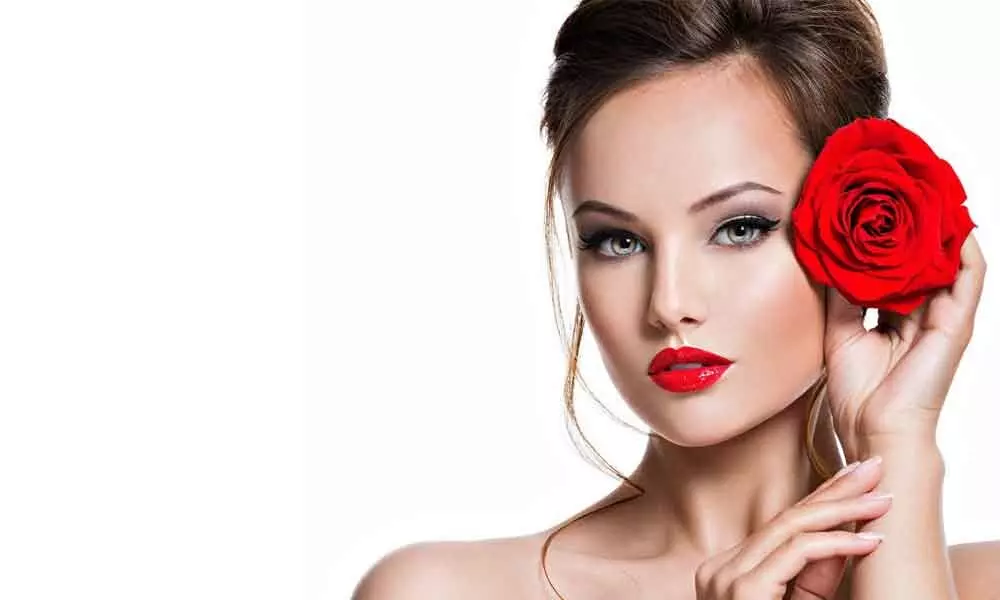Flowers for beauty

Flowers for beauty
In beauty salon treatments in cosmetic products, flowers are used in the form of extracts or essential oils
Flowers are nature's gift to man and provide a unique level of botanical energy. They not only delight the senses with their beautiful colours and fragrances, but actually have powerful properties, which help to bring about the ideal harmony of both body and mind.
In beauty salon treatments in cosmetic products, flowers are used in the form of extracts or essential oils. An essential oil is very different from pressed oils, like sesame seed (til), coconut, olive, almond oils. Essential oils are very complex in nature and constitute the volatile and aromatic part of the plant. They are like the life-force of the plant.
Among the essential oils of the flowers used in beauty, the most common are rose, jasmine, lavender, camomile, marigold, lotus, orange flower (neroli), hibiscus, geranium. One word of warning - essential oils should never be used by themselves. They should be diluted in the right proportions with other pressed oils and lotions like rose water.
Home care:
Rose water is one of the best known natural skin toners. Chill some rose water in a bowl. Using cotton wool, wipe the skin with it. Then pat the skin briskly. It helps to keep the skin healthy and youthful and is particularly good during the summer and rainy season.
For oily skin, add 2 to 3 drops of lemon juice to one tablespoon rose water. Dip cotton wool in it and use it to wipe the face. It will help to remove the surface film of oil and stale sweat and leave you with a cool and fresh feeling. For normal to dry skin, add 2 to 3 drops of glycerin to one tablespoon rose water and apply on the face.
A few drops of rose water can be added to sandalwood paste and applied on pimples, acne or boils, to soothe and cure. It helps to reduce inflammation. Rose water can also be added to face packs and scrubs. Almond meal can be used with a little rose water as a facial scrub. Dip cotton wool pads in rose water and use as eye pads, to remove fatigue and brighten the eyes.
Both hot and cold infusions can be made from hibiscus flowers and leaves, though cold infusions are more common. For hot infusions, the flowers and leaves are added to boiling water and allowed to stand in it for 10 to 12 hours. The infusion is strained and then used as a last rinse after washing the hair. Good for dandruff and related conditions.
For cold infusions, the hibiscus flowers and leaves should be allowed to stand overnight in cold water, in a ratio of one to six. The flowers should be squeezed and the water strained before use. Such infusions can be used to wash the hair and scalp, or applied on the scalp with cotton wool. Infusions, or the juice of the flowers, can be added to henna and applied on the hair. This can be a total hair-food and conditioning treatment.
Add 10 drops of an essential oil to 50 ml of carrier oil. Blend in small quantities, so that it does not turn rancid. This makes a good massage oil, leaving the body fragrant. If you wish to blend two oils together, make sure that the total amount of oil is 10 drops to 50 ml carrier oil.
Almond or sesame seed (til) oils make good carrier oils for blending with essential oils. You can use essential oils of rose, orange flower (neroli) or lavender. Essential oils can also be added to rose water, to make a skin tonic. Add 5 drops of the essential oil to 50 ml rose water. Oil of neroli added to rose water can benefit dry and dehydrated skin. Oil of Lavender added to rose water can benefit oily skin. These blends can also be used as fragrance.










